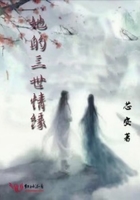As Athos and Aramis proceeded, and passed different companies on the road, they became aware that they were arriving near the field of battle.
"Ah! my friend!" cried Athos, suddenly, "where have you brought us? I fancy I perceive around us faces of different officers in the royal army; is not that the Duc de Chatillon himself coming toward us with his brigadiers?"
"Good-day, sirs," said the duke, advancing; "you are puzzled by what you see here, but one word will explain everything. There is now a truce and a conference. The prince, Monsieur de Retz, the Duc de Beaufort, the Duc de Bouillon, are talking over public affairs. Now one of two things must happen: either matters will not be arranged, or they will be arranged, in which last case I shall be relieved of my command and we shall still meet again."
"Sir," said Aramis, "you speak to the point. Allow me to ask you a question: Where are the plenipotentiaries?"
"At Charenton, in the second house on the right on entering from the direction of Paris."
"And was this conference arranged beforehand?"
"No, gentlemen, it seems to be the result of certain propositions which Mazarin made last night to the Parisians."
Athos and Aramis exchanged smiles; for they well knew what those propositions were, to whom they had been made and who had made them.
"And that house in which the plenipotentiaries are," asked Athos, "belongs to——"
"To Monsieur de Chanleu, who commands your troops at Charenton. I say your troops, for I presume that you gentlemen are Frondeurs?"
"Yes, almost," said Aramis.
"We are for the king and the princes," added Athos.
"We must understand each other," said the duke. "The king is with us and his generals are the Duke of Orleans and the Prince de Conde, although I must add 'tis almost impossible now to know to which party any one belongs."
"Yes," answered Athos, "but his right place is in our ranks, with the Prince de Conti, De Beaufort, D'Elbeuf, and De Bouillon; but, sir, supposing that the conference is broken off—are you going to try to take Charenton?"
"Such are my orders."
"Sir, since you command the cavalry——"
"Pardon me, I am commander-in-chief."
"So much the better. You must know all your officers—I mean those more distinguished."
"Why, yes, very nearly."
"Will you then kindly tell me if you have in your command the Chevalier d'Artagnan, lieutenant in the musketeers?"
"No, sir, he is not with us; he left Paris more than six weeks ago and is believed to have gone on a mission to England."
"I knew that, but I supposed he had returned."
"No, sir; no one has seen him. I can answer positively on that point, for the musketeers belong to our forces and Monsieur de Cambon, the substitute for Monsieur d'Artagnan, still holds his place."
The two friends looked at each other.
"You see," said Athos.
"It is strange," said Aramis.
"It is absolutely certain that some misfortune has happened to them on the way."
"If we have no news of them this evening, to-morrow we must start."
Athos nodded affirmatively, then turning:
"And Monsieur de Bragelonne, a young man fifteen years of age, attached to the Prince de Conde—has he the honor of being known to you?" diffident in allowing the sarcastic Aramis to perceive how strong were his paternal feelings.
"Yes, surely, he came with the prince; a charming young man; he is one of your friends then, monsieur le comte?"
"Yes, sir," answered Athos, agitated; "so much so that I wish to see him if possible."
"Quite possible, sir; do me the favor to accompany me and I will conduct you to headquarters."
"Halloo, there!" cried Aramis, turning around; "what a noise behind us!"
"A body of cavaliers is coming toward us," said Chatillon.
"I recognize the coadjutor by his Frondist hat."
"And I the Duc de Beaufort by his white plume of ostrich feathers."
"They are coming, full gallop; the prince is with them—ah! he is leaving them!"
"They are beating the rappel!" cried Chatillon; "we must discover what is going on."
In fact, they saw the soldiers running to their arms; the trumpets sounded; the drums beat; the Duc de Beaufort drew his sword. On his side the prince sounded a rappel and all the officers of the royalist army, mingling momentarily with the Parisian troops, ran to him.
"Gentlemen," cried Chatillon, "the truce is broken, that is evident; they are going to fight; go, then, into Charenton, for I shall begin in a short time—there's a signal from the prince!"
The cornet of a troop had in fact just raised the standard of the prince.
"Farewell, till the next time we meet," cried Chatillon, and he set off, full gallop.
Athos and Aramis turned also and went to salute the coadjutor and the Duc de Beaufort. As to the Duc de Bouillon, he had such a fit of gout as obliged him to return to Paris in a litter; but his place was well filled by the Duc d'Elbeuf and his four sons, ranged around him like a staff. Meantime, between Charenton and the royal army was left a space which looked ready to serve as a last resting place for the dead.
"Gentlemen," cried the coadjutor, tightening his sash, which he wore, after the fashion of the ancient military prelates, over his archiepiscopal simar, "there's the enemy approaching. Let us save them half of their journey."
And without caring whether he were followed or not he set off; his regiment, which bore the name of the regiment of Corinth, from the name of his archbishopric, darted after him and began the fight. Monsieur de Beaufort sent his cavalry, toward Etampes and Monsieur de Chanleu, who defended the place, was ready to resist an assault, or if the enemy were repulsed, to attempt a sortie.
The battle soon became general and the coadjutor performed miracles of valor. His proper vocation had always been the sword and he was delighted whenever he could draw it from the scabbard, no matter for whom or against whom.
Chanleu, whose fire at one time repulsed the royal regiment, thought that the moment was come to pursue it; but it was reformed and led again to the charge by the Duc de Chatillon in person. This charge was so fierce, so skillfully conducted, that Chanleu was almost surrounded. He commanded a retreat, which began, step by step, foot by foot; unhappily, in an instant he fell, mortally wounded. De Chatillon saw him fall and announced it in a loud voice to his men, which raised their spirits and completely disheartened their enemies, so that every man thought only of his own safety and tried to gain the trenches, where the coadjutor was trying to reform his disorganized regiment.
Suddenly a squadron of cavalry galloped up to encounter the royal troops, who were entering, pele-mele, the intrenchments with the fugitives. Athos and Aramis charged at the head of their squadrons; Aramis with sword and pistol in his hands, Athos with his sword in his scabbard, his pistol in his saddle-bags; calm and cool as if on the parade, except that his noble and beautiful countenance became sad as he saw slaughtered so many men who were sacrificed on the one side to the obstinacy of royalty and on the other to the personal rancor of the princes. Aramis, on the contrary, struck right and left and was almost delirious with excitement. His bright eyes kindled, and his mouth, so finely formed, assumed a wicked smile; every blow he aimed was sure, and his pistol finished the deed—annihilated the wounded wretch who tried to rise again.
On the opposite side two cavaliers, one covered with a gilt cuirass, the other wearing simply a buff doublet, from which fell the sleeves of a vest of blue velvet, charged in front. The cavalier in the gilt cuirass fell upon Aramis and struck a blow that Aramis parried with his wonted skill.
"Ah! 'tis you, Monsieur de Chatillon," cried the chevalier; "welcome to you—I expected you."
"I hope I have not made you wait too long, sir," said the duke; "at all events, here I am."
"Monsieur de Chatillon," cried Aramis, taking from his saddle-bags a second pistol, "I think if your pistols have been discharged you are a dead man."
"Thank God, sir, they are not!"
And the duke, pointing his pistol at Aramis, fired. But Aramis bent his head the instant he saw the duke's finger press the trigger and the ball passed without touching him.
"Oh! you've missed me," cried Aramis, "but I swear to Heaven! I will not miss you."
"If I give you time!" cried the duke, spurring on his horse and rushing upon him with his drawn sword.
Aramis awaited him with that terrible smile which was peculiar to him on such occasions, and Athos, who saw the duke advancing toward Aramis with the rapidity of lightning, was just going to cry out, "Fire! fire, then!" when the shot was fired. De Chatillon opened his arms and fell back on the crupper of his horse.
The ball had entered his breast through a notch in the cuirass.
"I am a dead man," he said, and fell from his horse to the ground.
"I told you this, I am now grieved I have kept my word. Can I be of any use to you?"
Chatillon made a sign with his hand and Aramis was about to dismount when he received a violent shock; 'twas a thrust from a sword, but his cuirass turned aside the blow.
He turned around and seized his new antagonist by the wrist, when he started back, exclaiming, "Raoul!"
"Raoul?" cried Athos.
The young man recognized at the same instant the voices of his father and the Chevalier d'Herblay; two officers in the Parisian forces rushed at that instant on Raoul, but Aramis protected him with his sword.
"My prisoner!" he cried.
Athos took his son's horse by the bridle and led him forth out of the melee.
At this crisis of the battle, the prince, who had been seconding De Chatillon in the second line, appeared in the midst of the fight; his eagle eye made him known and his blows proclaimed the hero.
On seeing him, the regiment of Corinth, which the coadjutor had not been able to reorganize in spite of all his efforts, threw itself into the midst of the Parisian forces, put them into confusion and re-entered Charenton flying. The coadjutor, dragged along with his fugitive forces, passed near the group formed by Athos, Raoul and Aramis. Aramis could not in his jealousy avoid being pleased at the coadjutor's misfortune, and was about to utter some bon mot more witty than correct, when Athos stopped him.
"On, on!" he cried, "this is no moment for compliments; or rather, back, for the battle seems to be lost by the Frondeurs."
"It is a matter of indifference to me," said Aramis; "I came here only to meet De Chatillon; I have met him, I am contented; 'tis something to have met De Chatillon in a duel!"
"And besides, we have a prisoner," said Athos, pointing to Raoul.
The three cavaliers continued their road on full gallop.
"What were you doing in the battle, my friend?" inquired Athos of the youth; "'twas not your right place, I think, as you were not equipped for an engagement!"
"I had no intention of fighting to-day, sir; I was charged, indeed, with a mission to the cardinal and had set out for Rueil, when, seeing Monsieur de Chatillon charge, an invincible desire possessed me to charge at his side. It was then that he told me two cavaliers of the Parisian army were seeking me and named the Comte de la Fere."
"What! you knew we were there and yet wished to kill your friend the chevalier?"
"I did not recognize the chevalier in armor, sir!" said Raoul, blushing; "though I might have known him by his skill and coolness in danger."
"Thank you for the compliment, my young friend," replied Aramis, "we can see from whom you learned courtesy. Then you were going to Rueil?"
"Yes! I have a despatch from the prince to his eminence."
"You must still deliver it," said Athos.
"No false generosity, count! the fate of our friends, to say nothing of our own, is perhaps in that very despatch."
"This young man must not, however, fail in his duty," said Athos.
"In the first place, count, this youth is our prisoner; you seem to forget that. What I propose to do is fair in war; the vanquished must not be dainty in the choice of means. Give me the despatch, Raoul."
The young man hesitated and looked at Athos as if seeking to read in his eyes a rule of conduct.
"Give him the despatch, Raoul! you are the chevalier's prisoner."
Raoul gave it up reluctantly; Aramis instantly seized and read it.
"You," he said, "you, who are so trusting, read and reflect that there is something in this letter important for us to see."
Athos took the letter, frowning, but an idea that he should find something in this letter about D'Artagnan conquered his unwillingness to read it.
"My lord, I shall send this evening to your eminence in order to reinforce the troop of Monsieur de Comminges, the ten men you demand. They are good soldiers, fit to confront the two violent adversaries whose address and resolution your eminence is fearful of."
"Oh!" cried Athos.
"Well," said Aramis, "what think you about these two enemies whom it requires, besides Comminges's troop, ten good soldiers to confront; are they not as like as two drops of water to D'Artagnan and Porthos?"
"We'll search Paris all day long," said Athos, "and if we have no news this evening we will return to the road to Picardy; and I feel no doubt that, thanks to D'Artagnan's ready invention, we shall then find some clew which will solve our doubts."
"Yes, let us search Paris and especially inquire of Planchet if he has yet heard from his former master."
"That poor Planchet! You speak of him very much at your ease, Aramis; he has probably been killed. All those fighting citizens went out to battle and they have been massacred."
It was, then, with a sentiment of uneasiness whether Planchet, who alone could give them information, was alive or dead, that the friends returned to the Place Royale; to their great surprise they found the citizens still encamped there, drinking and bantering each other, although, doubtless, mourned by their families, who thought they were at Charenton in the thickest of the fighting.
Athos and Aramis again questioned Planchet, but he had seen nothing of D'Artagnan; they wished to take Planchet with them, but he could not leave his troop, who at five o'clock returned home, saying that they were returning from the battle, whereas they had never lost sight of the bronze equestrian statue of Louis XIII.














